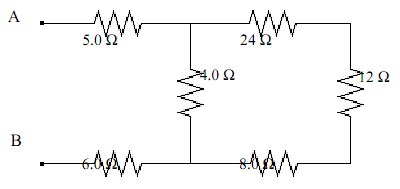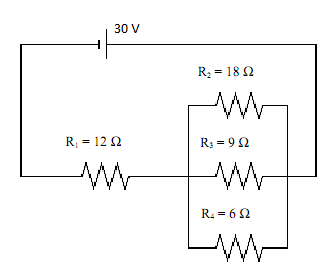Reference no: EM132266563
Physics Problems -
1) A DVD player in a computer draws a current of 0.27 A. How many electrons pass through the player in one minute?
2) A camcorder can run off of a charged battery pack for 2 hours. If the pack supplies 180 C of charge to the camcorder, how much current does it draw from the battery?
3) A light bulb has a filament with a resistance of 580Ω. A battery of 120 V is attached to the light bulb. How much current goes through the filament?
4) A copper cable has a current of 1200 A running through it. There is a potential difference of 0.016 V between two points on the cable that are 0.24 m apart. Calculate the radius of the cable.
5) A toaster uses a nichrome heating wire. When the toaster is turned on at 20oC, the initial current is 1.5 A. A few seconds later, the toaster heats up and the current is 1.30 A. What is the temperature of the wire? (Hint: Set two equations equal to each other then cancel an unknown.)
6) A resistor can safely dissipate power only up to a certain rated value, beyond which the resistor becomes extremely hot and often cracks apart. What is the largest voltage that can be applied across a 680 Ω resistor, when the resistor is rated at (a) 0.25 W and (b) 2.0 W?
7) Three resistors are connected in series. Their values are 3Ω, 5Ω, and 8Ω. The resistors are connected to a battery of 25 V.
a) Draw a circuit diagram.
b) Find the equivalent resistance.
c) Find the current coming out of the battery.
d) Using a V-I-R chart find the V and I values for each resistor.
8) Three resistors are connected in parallel. Their values are 3Ω, 5Ω, and 8Ω. The resistors are connected to a battery of 25 V.
a) Draw a circuit diagram.
b) Find the equivalent resistance.
c) Find the current coming out of the battery.
d) Using a V-I-R chart find the V and I values for each resistor.
9) Determine the equivalent resistance between points A and B for the resistors shown in the circuit below.

10) Analyze the circuit below using a V-I-R chart. Find the Ibatt, Req, and the values of I and V for each resistor.
